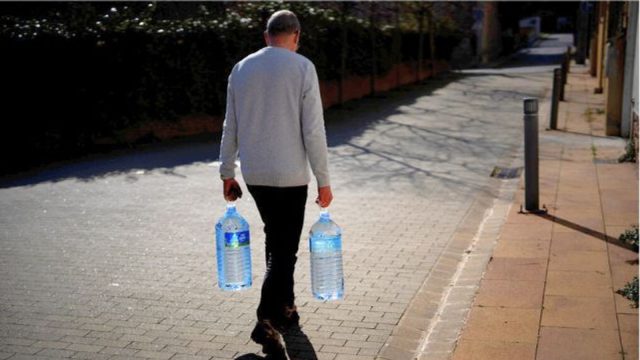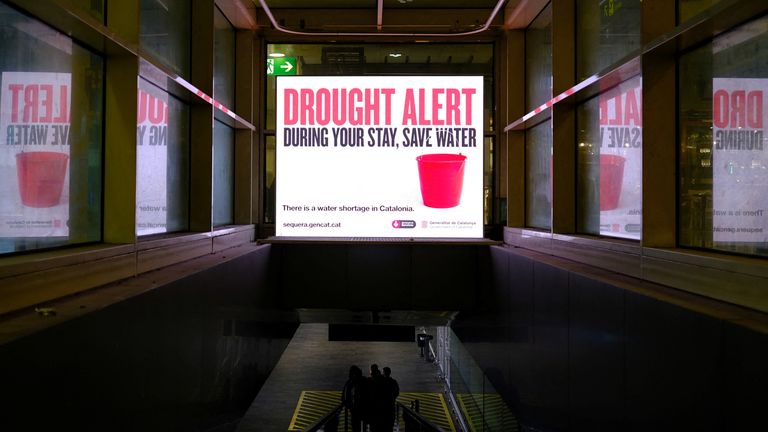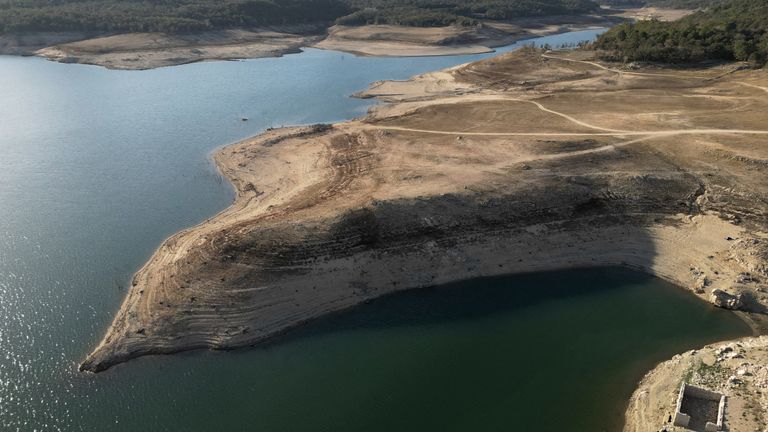Tourists visiting Catalonia in Spain could be subject to water restrictions as the region battles a “drought emergency”, the regional government has said.
Catalan officials warned a restriction of 100 litres (26 gallons) per tourist per day for hotels would go into effect if a municipality fails to keep domestic water use by residents below established limits for three consecutive months.
Currently, each resident in the northeastern region uses 160 litres of water per day – including for both washing and drinking – while the average tourist in the capital of Barcelona uses 163 litres of water a day.
This figure rose to more than 240 litres for luxury hotels, according to Barcelona’s hotel guild.
But there has been mounting pressure by water conservationist groups to limit this usage during the drought.
It comes after tourists arriving at Barcelona’s airport last month were met with large signs in English that read: “Drought alert. During your stay, save water”.
At the time, Catalan officials appealed for tourists to act responsibly, but were also adamant the drought should not put them off coming to the Spanish city and region, where tourism accounts for 12% of the local economy.
On Tuesday, the Catalan government said limits would not include the water used to fill swimming pools.
It also loosened restrictions that prohibited the filling of swimming pools with fresh water.
Read more from Sky News:
EasyJet suspends flights to Tel Aviv
‘Hardest Geezer’ set to run London Marathon
First product by Duchess of Sussex’s lifestyle brand
Under the new measure, a privately owned swimming pool can be refilled in a severe drought if authorities declare it a “climate refuge” open to residents seeking relief from the heat.
A water emergency was declared back in February to combat regional drought caused by climate change.
Limitations included reducing average water use by 80% for crop irrigation, 50% for herd animals and 25% for industry.
Although Catalonia has borne the brunt of the drought, it has also impacted parts of the South.
However, a relatively wet spring has helped fill reservoirs for Barcelona to 18%, up from 15%.



















